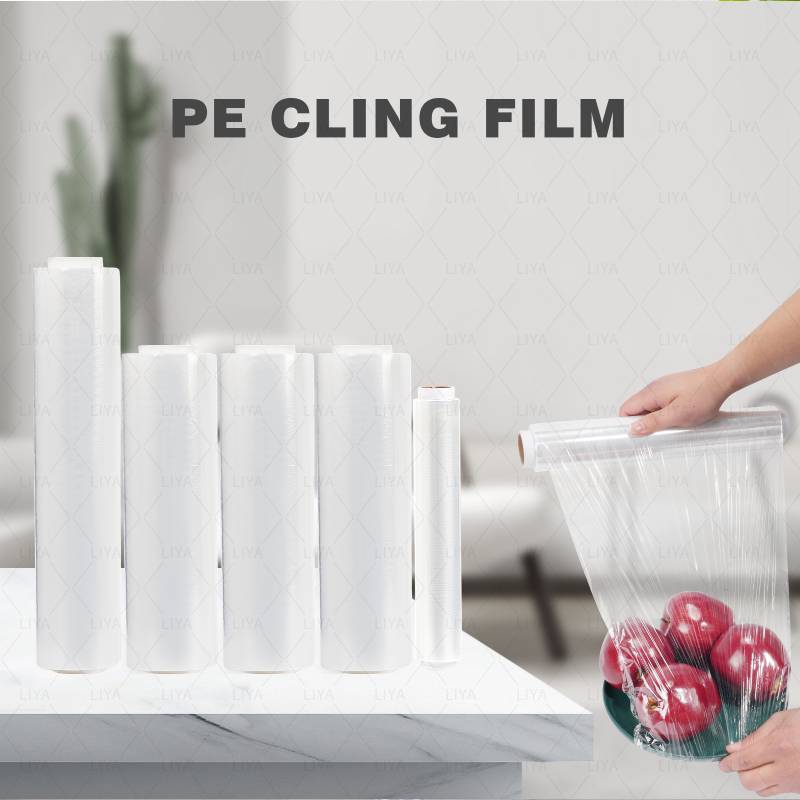Eco-Friendly Shrink Wrap Bags for Sustainable Packaging Solutions
The Rise of Biodegradable Shrink Wrap Bags A Sustainable Solution for Packaging
In recent years, the issue of plastic waste has garnered significant attention, prompting industries worldwide to seek innovative alternatives that are more environmentally friendly. Among these solutions, biodegradable shrink wrap bags have emerged as a popular and practical choice. This article explores what biodegradable shrink wrap bags are, their benefits, and their role in promoting sustainability.
Understanding Biodegradable Shrink Wrap Bags
Biodegradable shrink wrap bags are packaging solutions made from materials that can break down naturally in the environment. Unlike traditional plastic shrink wrap, which can take hundreds of years to decompose, biodegradable options are designed to decompose within a much shorter timeframe when exposed to the right environmental conditions. Typically, these bags are made from renewable resources such as cornstarch,PLA (polylactic acid), or other bio-based polymers.
Environmental Benefits
The environmental benefits of biodegradable shrink wrap bags are manifold
1. Reduction of Plastic Waste Traditional plastic bags contribute significantly to environmental pollution. With biodegradable shrink wrap bags, the impact of packaging waste is greatly diminished. These bags decompose naturally and can turn into compost, helping to enrich the soil rather than contributing to landfill mass.
2. Lower Carbon Footprint The production of biodegradable materials often results in lower greenhouse gas emissions compared to conventional plastic production. This reduces the overall carbon footprint associated with packaging and logistics.
3. Less Harm to Wildlife Traditional plastic pollution poses a severe threat to wildlife, as animals often mistake plastic for food. The natural decomposition of biodegradable bags means a reduced risk of harming wildlife in ecosystems where these bags may end up.
biodegradable shrink wrap bags

4. Conservation of Resources Biodegradable materials are often derived from renewable sources, which helps conserve finite resources such as fossil fuels. By transitioning to biodegradable shrink wrap bags, companies can take a step towards more sustainable resource management.
Practical Applications
Biodegradable shrink wrap bags are versatile and can be used across various industries, including food packaging, retail, and e-commerce. In the food industry, these bags can be particularly beneficial, as they can safely wrap and preserve products while adhering to health and safety standards. Retailers can also switch to biodegradable bags for wrapping merchandise, thus appealing to environmentally conscious consumers.
In e-commerce, where packaged products often end up in transit, biodegradable shrink wrap bags provide a sustainable option that ensures packages remain intact while also being conscious of the ecological footprint. With the rise of conscious consumerism, many brands are now opting for biodegradable solutions to attract a green-aligned audience.
Market Trends and Consumer Awareness
The market for biodegradable packaging is rapidly growing, spurred by increasing regulatory pressure on single-use plastics and rising consumer awareness regarding environmental issues. According to various market studies, the demand for biodegradable and compostable packaging solutions is expected to grow significantly in the coming years. Consumers are becoming increasingly aware of the impact of their choices on the environment and are more inclined to support brands that prioritize sustainability.
In response, many manufacturers are investing in research and development to improve the performance and affordability of biodegradable materials. Innovations in biopolymer technology are making it possible to produce shrink wrap bags that remain effective in performance while being environmentally friendly.
Conclusion
Biodegradable shrink wrap bags represent a promising shift towards sustainable packaging solutions. They offer a viable alternative to traditional plastic bags, providing environmental benefits that can help combat the plastic waste crisis while catering to consumer demand for sustainable products. As industries continue to innovate and adapt in response to environmental challenges, biodegradable shrink wrap bags will play a critical role in promoting sustainability and protecting our planet for future generations. The transition to biodegradable options is not just a trend; it is a necessary step towards a sustainable future, where both businesses and consumers can contribute to a healthier planet.
-
The Best Uses for Small Trash Bags in Daily LifeNewsJul.01,2025
-
Stylish Reusable Grocery Bags TrendsNewsJul.01,2025
-
Shipping Advantages of Using Bubble Envelopes BulkNewsJul.01,2025
-
How Compostable Mailing Bags Reduce Environmental ImpactNewsJul.01,2025
-
Environmentally - Friendly Bulk Poly MailersNewsJul.01,2025
-
Eco Friendly Custom Laminated Tote BagsNewsJul.01,2025
-
Have the freedom of customizing your custom mailers any way you want! Our dedicated packaging support will help deliver you the mailing experience you need to elevate your shipping experience to the next level! Start making a strong impression on your customers and stand out from your competitors! -
LIYA uses high quality raw materials which directly purchased from large enterprises domestic and overseas such as PetroChina, Sinopec, Sabic, Equate, ExxonMobil, Dow Chemical, Total, and Borouge, ensuring the price advantage and quality of the raw materials. -
LIYA uses high quality raw materials which directly purchased from large enterprises domestic and overseas such as PetroChina, Sinopec, Sabic, Equate, ExxonMobil, Dow Chemical, Total, and Borouge, ensuring the price advantage and quality of the raw materials.





